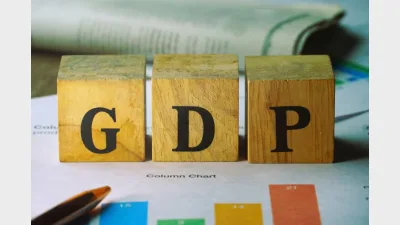Instos embrace risk as US equity allocations reach 16-year high



The State Street Risk Appetite Index saw its fourth consecutive month of risk seeking activity, rising to 0.27 in November.
Notably, institutional investor allocations to equities rose by a full percentage point to 53.8 per cent over the period – the highest level in 16.5 years.
According to State Street, this was funded by a 20 basis point fall in allocations to cash and a larger 80 basis point fall in holdings of fixed income securities.
Michael Metcalfe, head of macro strategy at State Street Global Markets, said investors’ equity allocations indicate that, while there are plenty of uncertainties about growth, policy and politics in the coming year, investors’ conviction in a US-led equity market rally is “unflinching”.
“Not only is the overweight in equities high historically, it is also concentrated,” Metcalfe added.
“Across the regions we track, the US is the only zone investors are currently overweight and it is a sizeable holding.”
Namely, by month-end holdings of US equities relative to the rest of the world were among the most stretched in State Street’s data set, which spans 26 years.
“In short, from the point of view of long-term investor holdings, the US has rarely been so exceptional.”
Across the pond in the Asia Pacific, Metcalfe explained that Japan remains the only area in the region where investors are neutrally positioned, while they remain significantly underweight in emerging markets in particular.
Meanwhile, having begun 2024 with neutral holdings in European equities, State Street revealed that institutional investors’ underweight in the asset class has fallen to a new eight-year low.
“Long-term investor positioning in sovereign fixed income markets has also been less optimistic, but is equally revealing,” Metcalfe added.
Demand for French sovereign bonds reached six-month lows in November, ahead of the subsequent collapse of the French government.
“For now in a telling sign of the lack of contagion, investors remain overweight other high debt countries in the Euro area such as Italy,” he concluded.
In October, when State Street’s Risk Appetite Index remained positive at 0.18, State Street noted at the time that investors went into November with their largest allocation to equities ahead of an election in 20 years.
“They were well-positioned for the initially positive market reaction to the election result,” Metcalfe said last month.
“Within equities, long-term investors remain overweight US equities relative to both European equities and emerging market equities, so are also well-prepared for the potential negative implications of US tariffs if they are enacted.”
Recommended for you
Superannuation industry bodies have warned the prudential regulator that some of the more rigid proposals in its Governa...
IFM has firmly opposed any push for publicly disclosing current valuations of private market assets, saying it would “damage the financial interests of investors” and reduce appetite for infrastructure and private business investment.
Subdued GDP figures have bolstered expectations that the RBA could cut rates sooner and, possibly more aggressively, market watchers say.
Australian institutional investors plan to keep their finger on the pulse of private markets, new data has shown, with local investors aiming to further expand allocations into the sector.









